The Umbrella Academy is that rare show that effectively balances its familiar and original content. The hit Netflix series has done a stellar job of honoring Gerard Way and Gabriel Bá’s graphic novel series. Equally, though, the TV adaptation’s story is more cohesive than events that transpire in the comics – a fresh spin on the source material’s narrative that’s pleasingly conducive to a TV series.
However, with the show largely running out of source material to adapt, The Umbrella Academy season 3 has a problem on its hands. The next volume in the comic series is yet to be published, meaning The Umbrella Academy’s TV series has officially overtaken the story in the graphic novels. The show must forge its own path forward from this point on, then, and its creative team will live or die by the experimental story and character-arc choices they make. It’s a similar conundrum to the one faced by Game of Thrones’ final season, and we all know how poorly it was received by fans and critics.
- Releases on Wednesday, June 22
- Launching exclusively on Netflix
- Based on Gerard Way and Gabriel Bá's graphic novels
- Partly inspired by volume 3, aka Hotel Oblivion
- Main cast from previous seasons all returning
- Introduces The Sparrow Academy from the books
- Helmed by showrunner Steve Blackman
Unfortunately, The Umbrella Academy season 3 struggles with comparable problems to its HBO cousin. There’s plenty to like about the show’s newest batch of episodes, with dramatic twists and turns, shock reveals, and compelling character development to enjoy. But, like the head-spinning timeline that the show’s superheroes have to navigate, season 3 is a messy chapter in the show’s history. It’s bogged down in drawn-out subplots, inconsistent pacing, and a lack of superpowered action. Consequently, it’s disappointingly the weakest entry in the series yet.
Apocalypse now
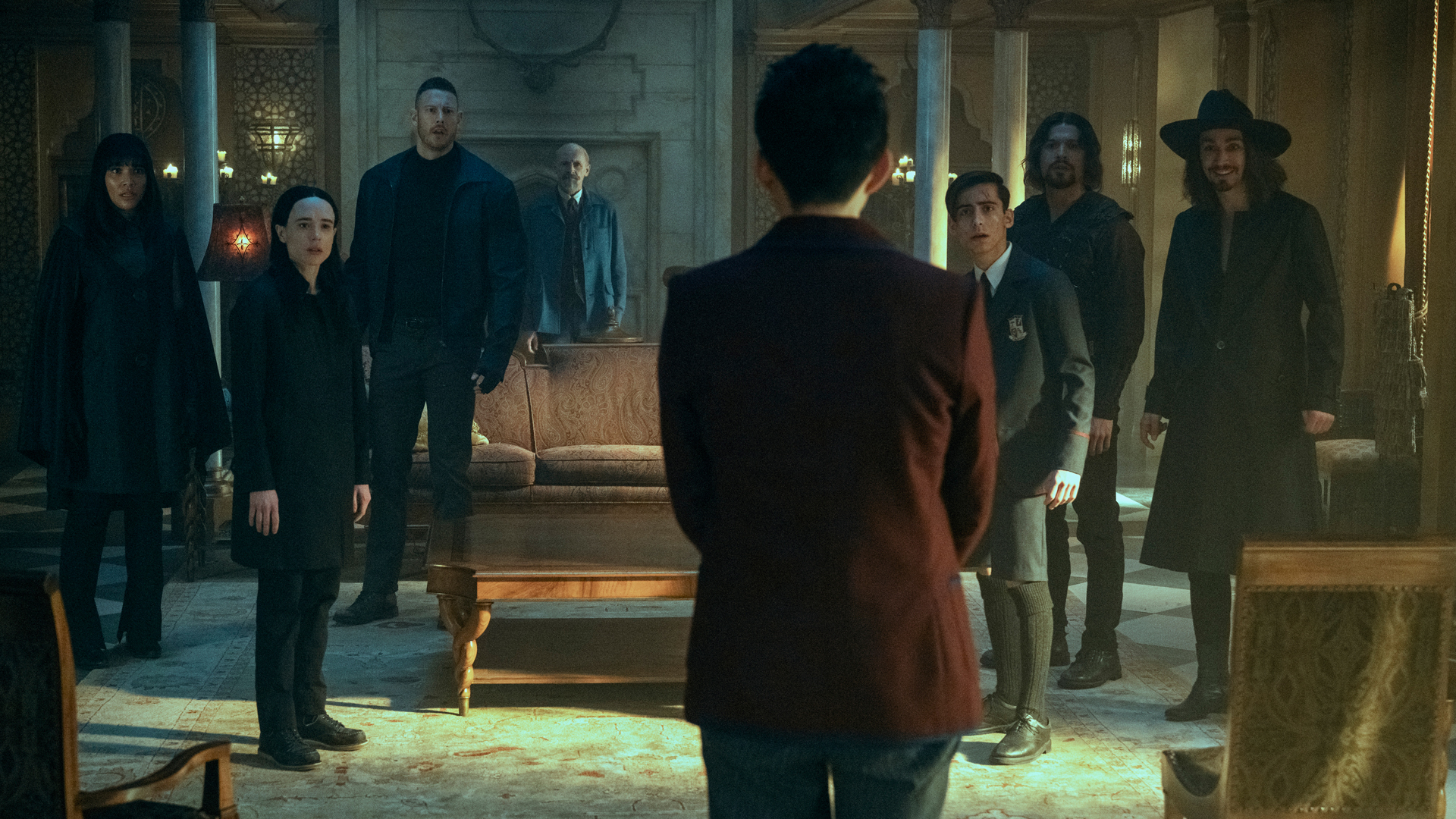
The Umbrella Academy season 3 picks up right after its predecessor’s final episode. After spending last season stuck in 1960s Dallas, the Hagreeves family thought they had returned home in the season 2 finale. However, it turned out that their time-traveling briefcase – provided by The Commission, the organization that oversees the time-space continuum – had unceremoniously dropped them in an alternate reality.
Greeted by their supposedly deceased father Sir Reginald Hargreeves (Colm Feore), the Umbrellas are stunned to find that they’ve been replaced in the superhero stakes. Step forward The Sparrow Academy, another group of superpowered individuals adopted by Sir Reginald in October 1989 – instead of the Umbrellas – who are far more adept at their jobs, not to mention more hostile and stubborn, than their siblings.
Inevitably, the groups don’t get on, but their clear dislike for one another, plus the Umbrellas’ desire to deal with the traumatic events of season 2, will have to be put aside for the time being. The Umbrella Academy’s arrival in this different dimension causes a time paradox, creating a destructive entity that begins wreaking havoc across the universe. With their previous experience of combating similar apocalypses, it’s up to the Umbrellas – with, perhaps the assistance of their Sparrow brethren, if the Umbrellas can convince them to help – to stop the world from ending again. Hey, third time’s a charm, right?
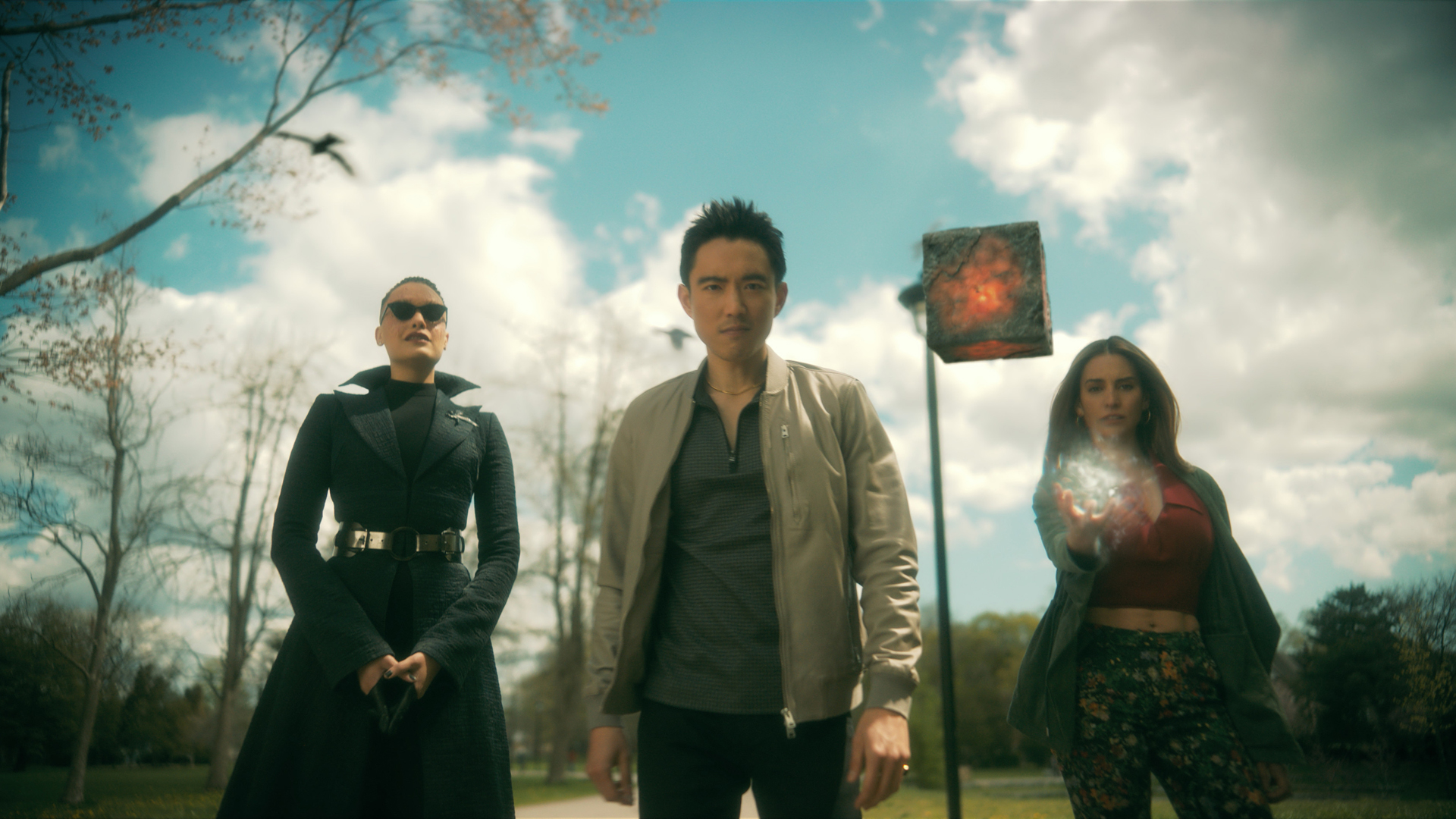
Appealing as this world-ending plot device is for the show’s creative team, it’s a narrative option that’s starting to become stale. Previous seasons used this doomsday angle to satisfying effect, but it’s a scenario that’s certainly run its course by season 3. With future entries likely on the way – showrunner Steve Blackman has planned for two more seasons – it’s time The Umbrella Academy moved away from this repetitive and overused trope. Way and Bá’s comics contain numerous fascinating villains, so giving our heroes a physical threat to combat would make for a welcome change. Based on season 3’s later episodes, it seems future seasons may mercifully do just that.
The introduction of The Sparrow Academy shows how effective this narrative evolution could be if it’s employed.
The Kugelblitz, season 3’s universe-destroying event, may be the primary ‘villain’ – if such a term can be used to describe it – of this installment, but the Sparrows are undeniably positioned as secondary antagonists/anti-heroes of the piece. They’re presented as an intriguing foil to the Umbrellas; a far more ambitious and efficient supergroup, but one that’s largely packed with ruthless individuals constantly looking to usurp each other as the team’s de facto leader. It’s a striking contrast to the dysfunctional but more family-oriented Umbrellas, one that holds each group up as a reflection of the other in fascinating fashion.
There’s enough revelatory content here to satisfy audiences
Given the Sparrows and Umbrellas’ respective strengths and weaknesses, physical and verbal bouts make for captivating superhero-on-superhero battles akin to those seen in Captain America: Civil War. Punch-ups are bruising and intense – no wonder the show’s age rating has been raised from TV-14 to R in the US, and from 12 to 15 in the UK. The vicious insults and aggressive bickering are no less severe either, with tense arguments within and between the groups making for some truly suspenseful scenes.
Fans shouldn’t worry that the show’s off-brand humor has been relegated to the background in favor of melodrama, either. Wisecracks and those fan-favorite dance numbers feature heavily throughout, ensuring that the series’ comedic flair remains intact amid its more serious story beats.
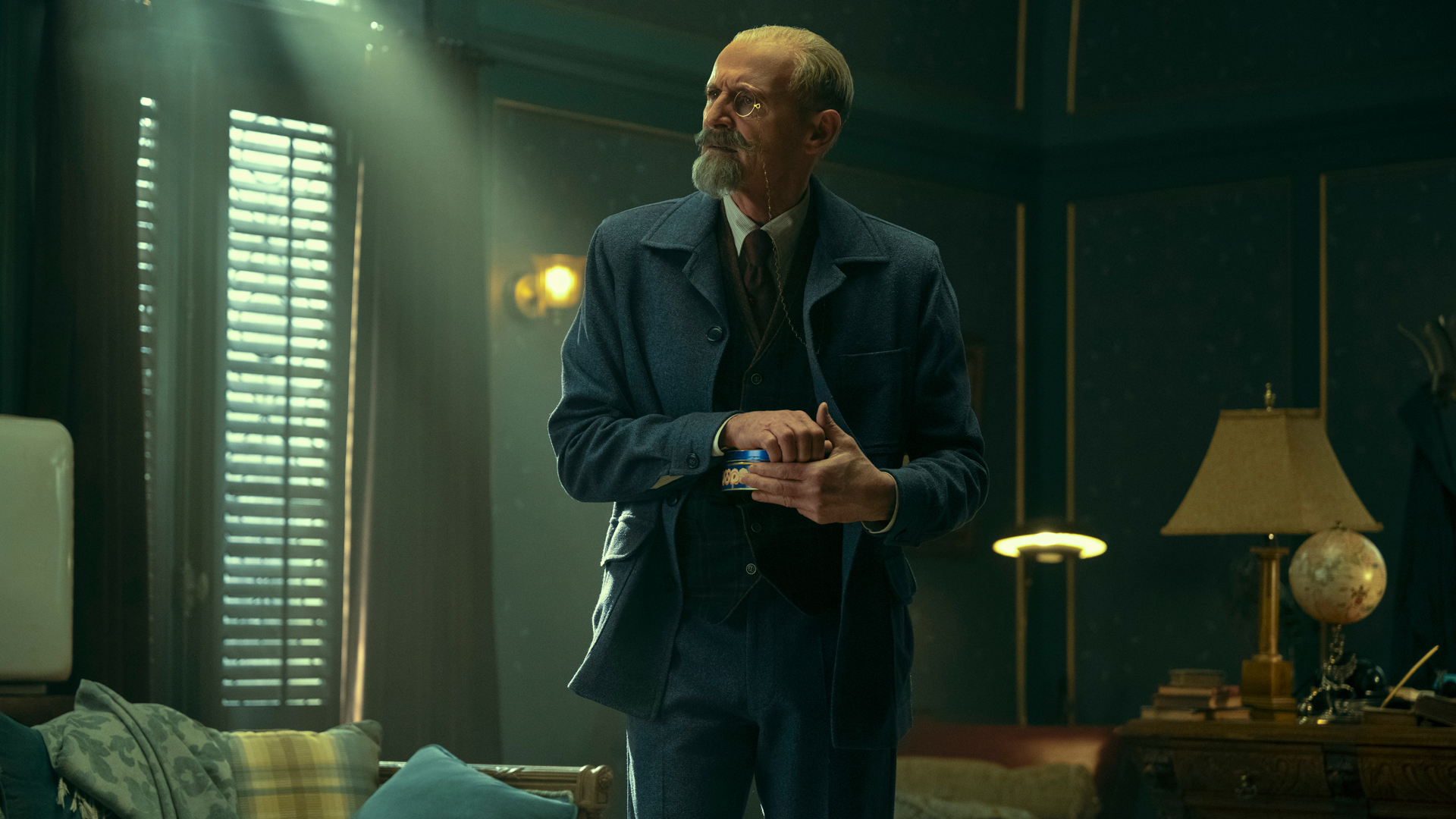
However, season 3 doesn’t make good use of the Sparrows’ role in proceedings. Ben (Justin H. Min) and Sloane (Genesis Rodriguez) aside, the show’s new batch of superheroes are woefully underutilized, with audiences receiving little to no information about their backstories.
Sure, the reasons for these narrative choices become clear as the season progresses. Still, it’s disappointing that the show doesn’t extensively explore the Sparrows’ family dynamic, or the circumstances that led Jayme (Cassie David), Alphonso (Jake Epstein), and Marcus (Justin Cornwell) to become superheroes. They’re as integral to season 3’s narrative as The Umbrella Academy is, even if the latter are the stars of the show. Save for some intriguing flashbacks in episodes 1 and 6, though, we’re unsatisfyingly left in the dark about the Sparrows’ origins.
When it rains, it pours
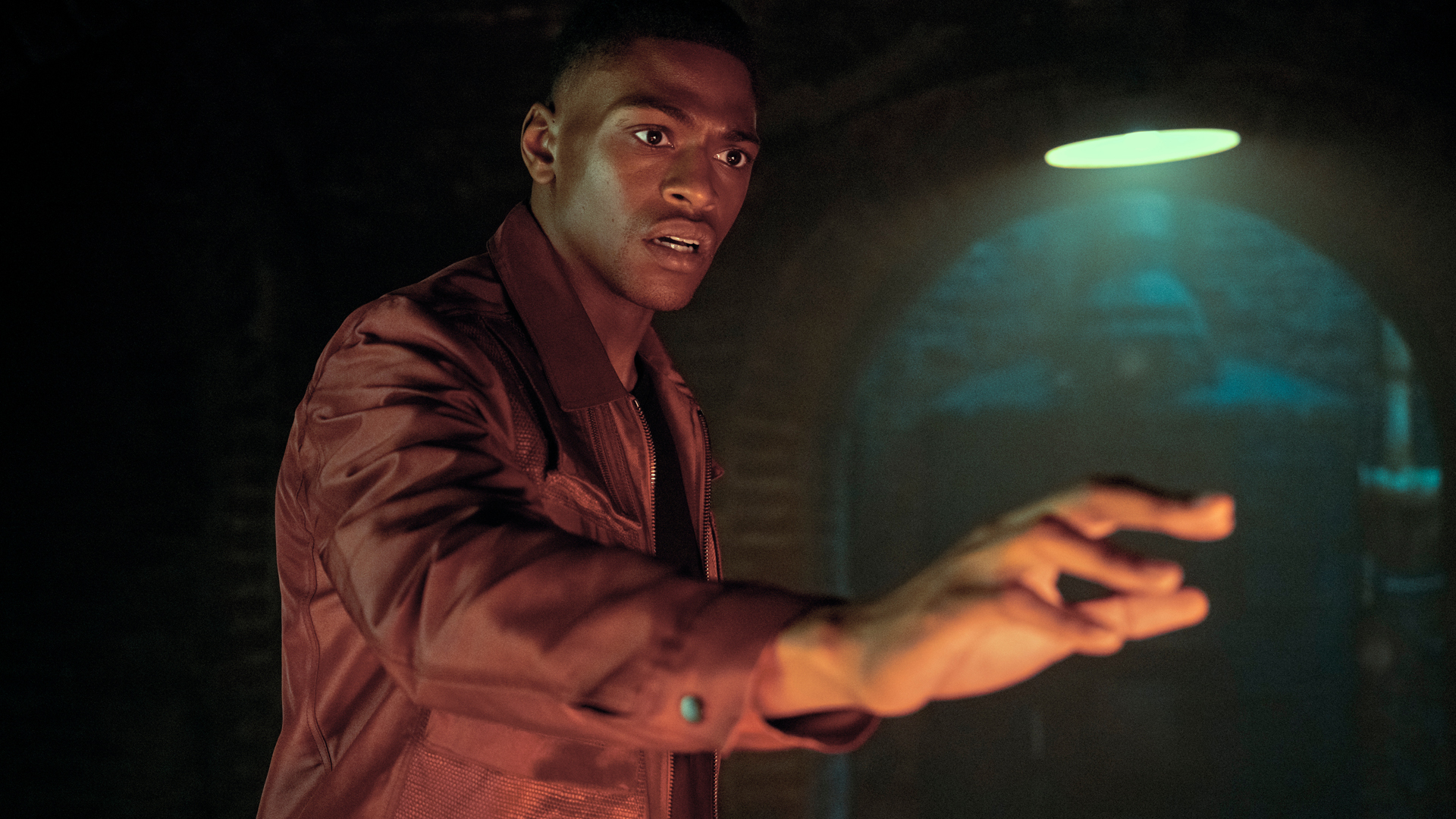
It’s a pity that neither the Sparrows’ relationships, nor their rivalry with the Umbrellas, are examined further when season 3’s subplots are frustrating in their inconsistencies.
For one thing, some storylines feel forced or overused. The show’s latest season wanders down narrative paths that, like its penchant for apocalypses, are overly familiar and tiresome. We’ve seen enough of the ‘will they, won’t they’ dance between Luther (Tom Hopper) and Allison (Emma Raver-Lampman) – even if there are self-serving and somewhat heart-wrenching reasons for its inclusion this time around. Meanwhile, the addition of a Romeo and Juliet-style romance, between a certain Sparrow and Umbrella, to the show feels labored. Again, there’s rationale behind it, but it feels awkwardly inserted into season 3’s overarching plot, especially early on.
The character evolution that Viktor (Elliot Page) undergoes is equally superfluous. Their story is one of the bright spots of season 3’s early episodes, but the new, more confident Viktor soon gives way to the timid, self-doubting figure we’ve seen in previous seasons. For a series that's done a solid job in terms of character growth in the seasons preceding this one, it's a baffling and vexing creative choice to have made.
Revisiting these story beats is all the more irritable when you see how good season 3’s character development and other plot threads are.
Season 3 doesn’t make good use of the Sparrows’ role in proceedings
From delightful team-ups – including unusual and surprise partnerships that fans will love – to engrossing character arcs, season 3 builds on its predecessors’ work, continuing to flesh out The Umbrella Academy’s unique world. Certain character relationships become stronger or more fragile, based on past events and those that play out in this installment, offering a tantalizing glimpse into how these bonds may evolve in future seasons.
This being The Umbrella Academy, fans will be well aware there are characters with morally complex motives. No matter a character’s intention, be it naked self-interest or a spur-of-the-moment decision made in error, season 3 is littered with numerous betrayals and shocks. The unpredictable nature of their arrivals ensures that audiences can’t get too comfortable about the formation of unlikely alliances, too, or characters who appear to have turned over a new leaf only to revert to type later on.
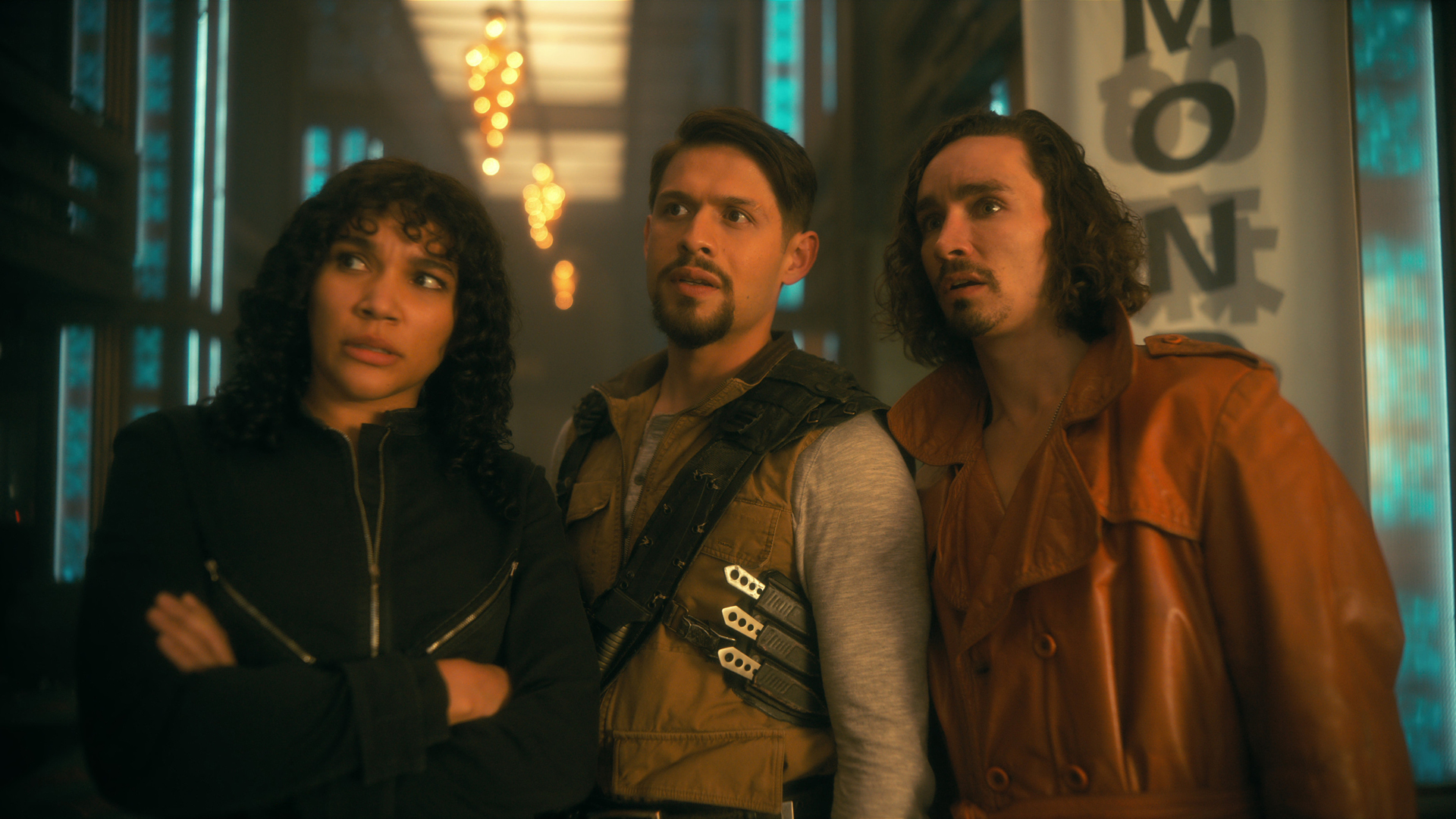
Viewers wishing to learn more about Sir Reginald’s backstory, how the Umbrellas and Sparrows obtain their powers, and the general mythology surrounding the show will be happy to hear that some answers to long-standing questions are answered. Naturally, season 3 doesn’t give up every secret, and some fans may grumble that certain plot threads aren’t resolved by its finale. However, there’s enough revelatory content here to simultaneously satisfy audiences while teasing more revelations about its fascinating lore.
While season 3 doesn’t fully examine the mythos at the center of the show, it makes up for this with its complex thematic exploration. Whether it’s the existential/identity crises that certain characters are afflicted with, the ethical dilemmas superheroes face, or myriad other topics, The Umbrella Academy is surprisingly deep for a show based around a dysfunctional, superpowered family. Special mention should go to Blackman and company’s sensitive handling of Viktor’s – and, by proxy, Page’s – coming out as transgender storyline. It’s a subplot tactfully handled by the cast and crew, and one that illuminates the importance of LGBTQ+ representation and acceptance in an industry that’s been slow to react to both.
Our verdict
The Umbrella Academy season 3 is a strange beast. On the one hand, it’s a reasonably enjoyable, mind-bending, and at-times horror-infused progression of the hit Netflix series that delivers unexpected moments and provides key answers to persistent fan queries.
Thrilling and entertaining as it is, though, this season is saddled with problems that, with more care and attention, could easily have been ironed out. Sure, it retains the satisfying hallmarks of the graphic novels and the TV adaptation’s previous installments. However, its increasingly loose interpretation of the source material, expository imbalance, questionable creative decisions, and occasional CG/green screen issues prevent it from living up to the thrilling ride that season 2 provided audiences with, and the tighter narrative that season 1 possessed.
It’s an entry that gets juicier and darker as it progresses but, even when heading towards its absorbing climax, season 3 struggles to measure up to its predecessors. It’s commendable that the series’ creative team (and Netflix) want the show to diverge from the comics. But, as shows like Game of Thrones have demonstrated, such an approach isn’t always for the best.
The Umbrella Academy season 3 can’t be faulted for its charm, shocks, humor, thematic resonance, or emotive story beats. However, it’ll need more than those – primarily, a better balance – moving forward if it’s to retain viewers’ interest. In an era where superhero movies and TV shows are commonplace, The Umbrella Academy needs to rediscover its form. Otherwise, those popular dance numbers, or the eccentricity of fan-favorite character Klaus (Robert Sheehan) won’t be enough to satisfy audiences.
The Umbrella Academy launches exclusively on Netflix on Wednesday, June 22.
from TechRadar - All the latest technology news https://ift.tt/WqmeTQt

No comments:
Post a Comment